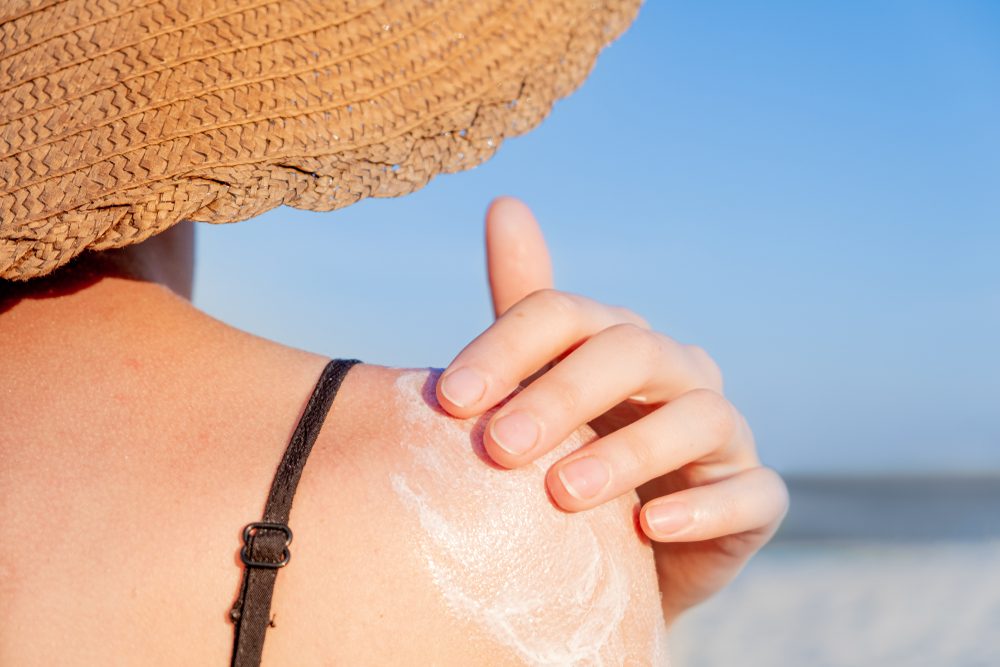Everyone knows by now that sunlight is extremely beneficial for our health, but we’ve also learned that it might harm us. Like many other things in life, the sun has both positive and negative qualities, especially concerning our health.
Here are some of the most noticeable benefits and dangers of sun exposure, and why you should be mindful when it comes to both. When it comes to sun exposure, it’s worth taking everything into consideration.
So, without further ado, let’s discuss the brightest star in our galaxy and why its rays have an effect on us that can be associated with a double-edged sword.

Benefit: mood booster
I think we can all attest to this. Whether you’re at work or school and you’re having one of the worst days ever, it seems that everything you touch automatically turns into a disaster, and everyone is plotting against you.
However, lunchtime comes, and you decide to treat yourself to a tasty treat. As soon as you walk outside, you realize that it’s a glorious, sunny day. By the time you make it to your favorite fast-food chain, you have a spring in your step and a big smile on your face.
And no, you’re not imagining things. Sunlight is, in fact, one of the best natural mood boosters we have. The science behind everything is actually quite impressive. It seems that exposure to sunlight releases a chemical in our brains known as serotonin.
This wonderful, feel-good chemical helps relieve depression, reduce anxiety, and stimulate the body to heal its wounds. It makes us feel much happier, calmer, and more in control.
Not having enough of it might lead to depression, such as seasonal affective disorder (SAD). So buckle up. Next time you’re feeling stressed, take a stroll in the sunlight and reap the benefits of serotonin.
Benefit: sleep aid
While it seems counterintuitive, the sun actually helps us sleep. Just as serotonin is very good as a mood booster, it also has another perk: it tells our bodies when to sleep. Our bodies and minds are made to work on a cycle known as the circadian rhythm.
Historically speaking, this is entirely defined by the presence or absence of sunlight. But with today’s electric lights and blue screens, we have gotten away from these natural sleep cues, and for many, insomnia is nothing but an inevitable result.
We’ve also mentioned how the sun releases serotonin into the body, which gives us energy and helps us feel happy and at ease. However, its purpose and benefits don’t end there.
You see, in the darkness, after the sun goes down, our body converts serotonin to make melatonin, which is a sleep hormone.
Unfortunately, many of our screens and bright lights mimic sunlight and confuse our bodies into thinking it’s still daylight. To make the most of the sun’s sleep benefits, make sure you turn off screens and dim the lights before bed.
Then, try to get plenty of sun exposure first thing in the morning to help yourself completely wake up. After a few days of doing this, you will find yourself sleeping more soundly and awake, rested, and refreshed.
Benefit: natural disinfectant
With the global pandemic, there has been plenty of focus lately on disinfectants. However, there’s one thing you could be overlooking in your quest to rid yourself of germs, and that is sunlight. As chemical disinfectants are definitely faster, the sun’s UV rays might be a wonderful option.
As a matter of fact, in some third-world countries, sunlight is used as a method for decontaminating water from microbiological pathogens. So how should we properly take advantage of such a benefit?
For surfaces that aren’t easily wiped down, setting them somewhere sunny might kill the majority of bacteria. So the next time you need to disinfect a rug, mattress, or anything else that’s too big to throw in the washing machine, just take advantage of this free method.
Also, remember to open the curtains at home during the day. Sunlight streaming in through windows might facilitate killing the bacteria in the air that would otherwise multiply in a cool, dark environment like an air-conditioned room.

Benefits: sunlight and vitamins
When we spend time in the sun, our skin manufactures vitamin D. What does that do, exactly? Well, the most important use of this vitamin in the body is to regulate calcium. This is very important for strong bones and teeth.
However, vitamin D can also help fight off diseases such as the flu and might even help with weight loss. Luckily, it’s really easy to get this vitamin. Only 15 minutes of sunlight exposure a day is long enough to give you all the vitamin D you might need.
So you might as well go outside and take a walk while the weather is still nice. You can also get vitamin D from foods such as salmon and egg yolks.
Moreover, some foods are fortified with vitamin D, like milk and orange juice. Supplements are also available if needed, though we advise you to keep an eye on the fact the fact that too much D might be just as bad as not enough.
Benefit: cancer prevention
It sounds strange, but it’s true. Sunlight has been shown to help prevent some types of cancer. In fact, according to a study published in the European Journal of Cancer Prevention, sunlight exposure is beneficial in preventing some types of cancers, including “colorectal, prostate, breast carcinoma, and non-Hodgkin lymphoma.”
As this preventive effect has long been associated with the benefits of vitamin D, ongoing research suggests that sunlight’s benefits in cancer prevention go way beyond its effects on vitamin D levels.
Danger: heat exhaustion and heat stroke
Two of the most common issues often associated with sun exposure are heat exhaustion and heat stroke. All these heat-related illnesses could occur when the body’s temperature is rapidly raised due to increased time spent in the sun.
As many people could associate the two with one another, they’re actually quite different conditions, and they should be treated differently.
Symptoms of heat stroke could also include a high body temperature (above 103 degrees Fahrenheit), hot and red skin, nausea, dizziness, headaches, confusion, a rapid pulse, and ultimately, passing out.
Heat stroke is another serious medical condition that should be treated rapidly by a qualified doctor or medical personnel. As you wait for medical assistance, do your best to lower the sufferer’s body temperature by moving them to a much cooler place and draping them with some cool and wet clothes.
On the other hand, heat exhaustion symptoms might include sweating, cool or clammy skin, a rapid pulse, weakness and dizziness, headaches, muscle cramps, vomiting, and ultimately, passing out.
If someone you know experiences heat exhaustion but not heat stroke, you should instantly move them to a cooler area and give them some water to sip. Cool wet clothes or even a cool bath might prove to be helpful. If the sufferer is throwing up, it’s important to look for medical help right away.
Danger: skin cancer
Naturally, while we’re only now learning that sunlight could help prevent some cancers, there’s yet another cancer that is definitely linked to sun exposure, and that is melanoma.
We’ve all seen the warnings before, and you probably already know that it’s mandatory to protect your skin if you’re out in the sun for a longer period of time.
To avoid such danger, use sunscreen with a high SPF or cover up your skin with clothing and a wide-brimmed hat.
Danger: sunburn
Besides cancer, another reason why you should protect your skin from the damaging rays of the sun is sunburn. We’ve all experienced this one way or another, and while people with darker skin are better protected against such danger, they can still burn from enough sun exposure. So make sure you invest in good-quality sunscreen this summer and reapply often if you decide to spend a day in the sun.
Danger: premature aging
For those with lighter skin tones, the sun might also cause visible signs of aging. For example, too much sun exposure could lead to wrinkles, a loss in firmness, age spots, or other uncomfortable discoloration.
So before you decide to book some time in a tanning bed or spend the day laying out in the sun, just remember that the golden tan you are looking for can do more harm than you might have thought.
If you found this article useful, we also recommend checking out: 7 Cancer Causing Foods You MUST Avoid






